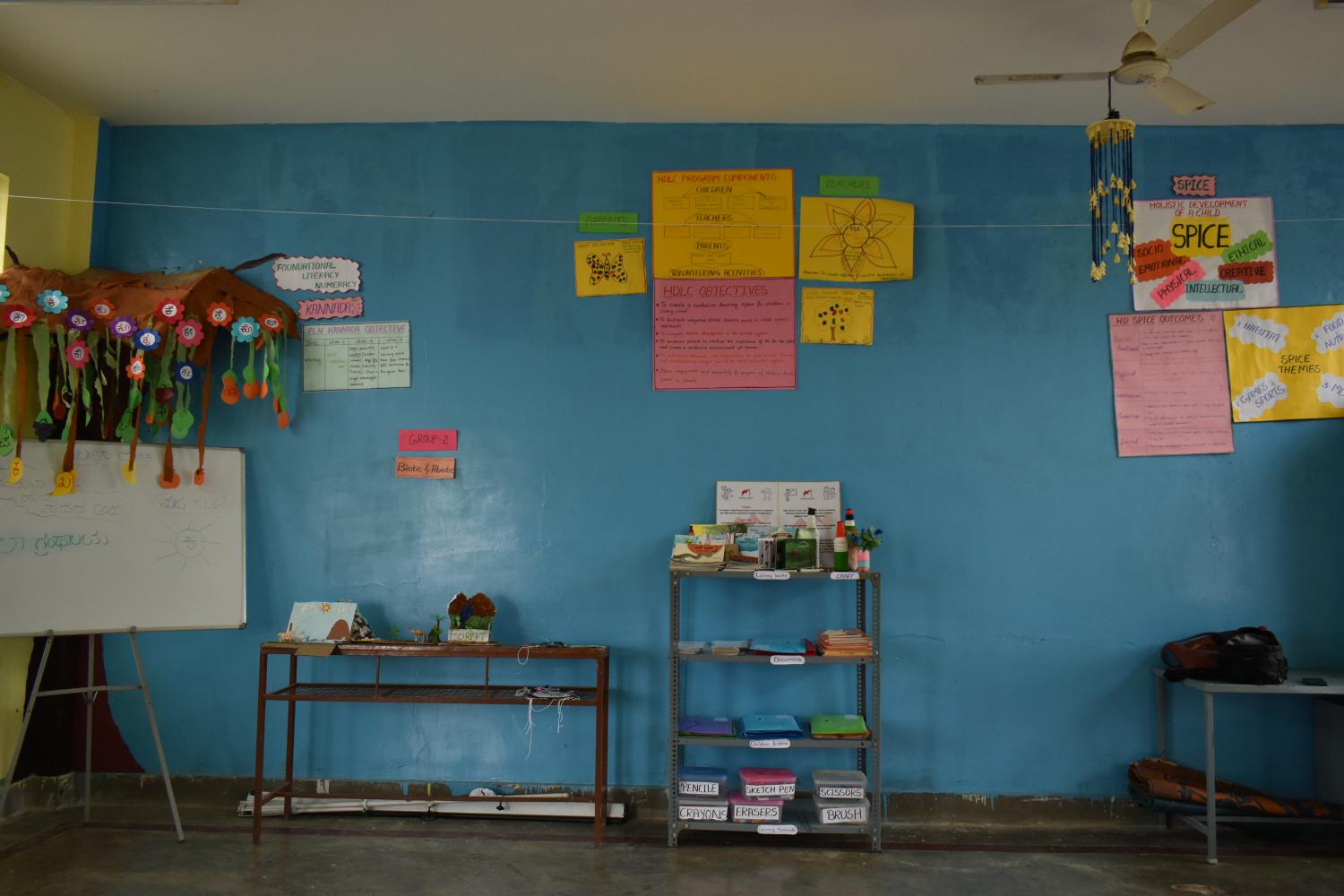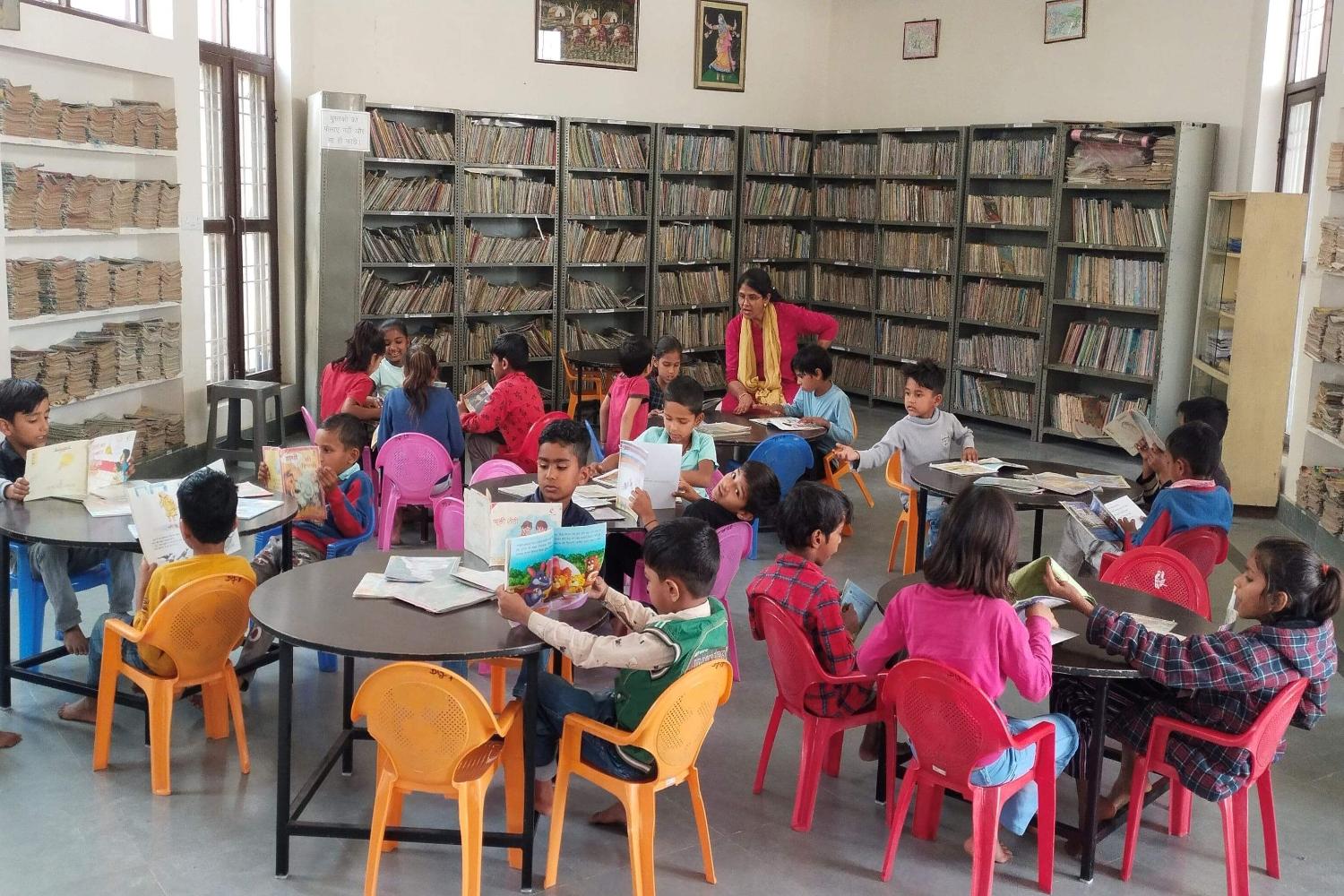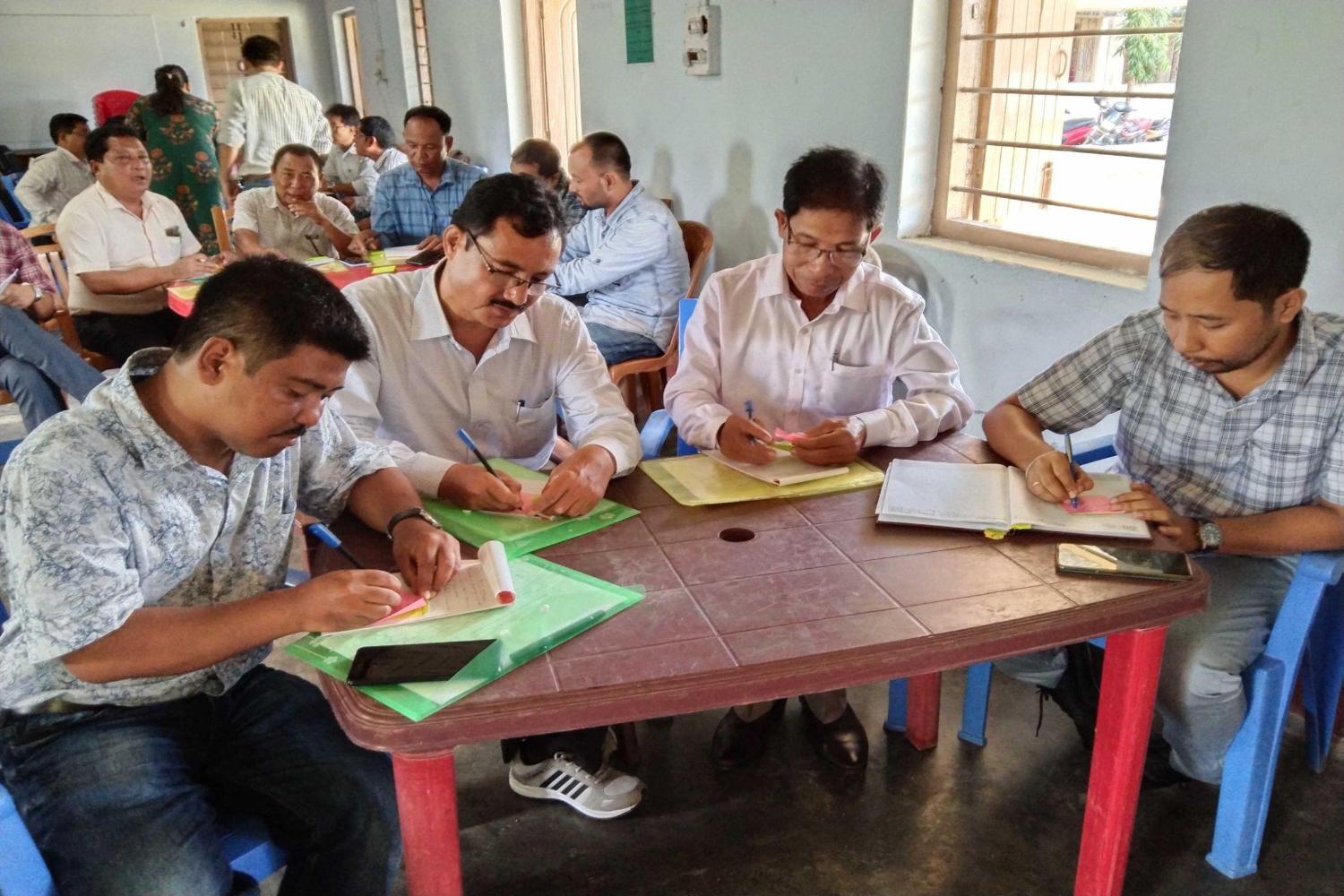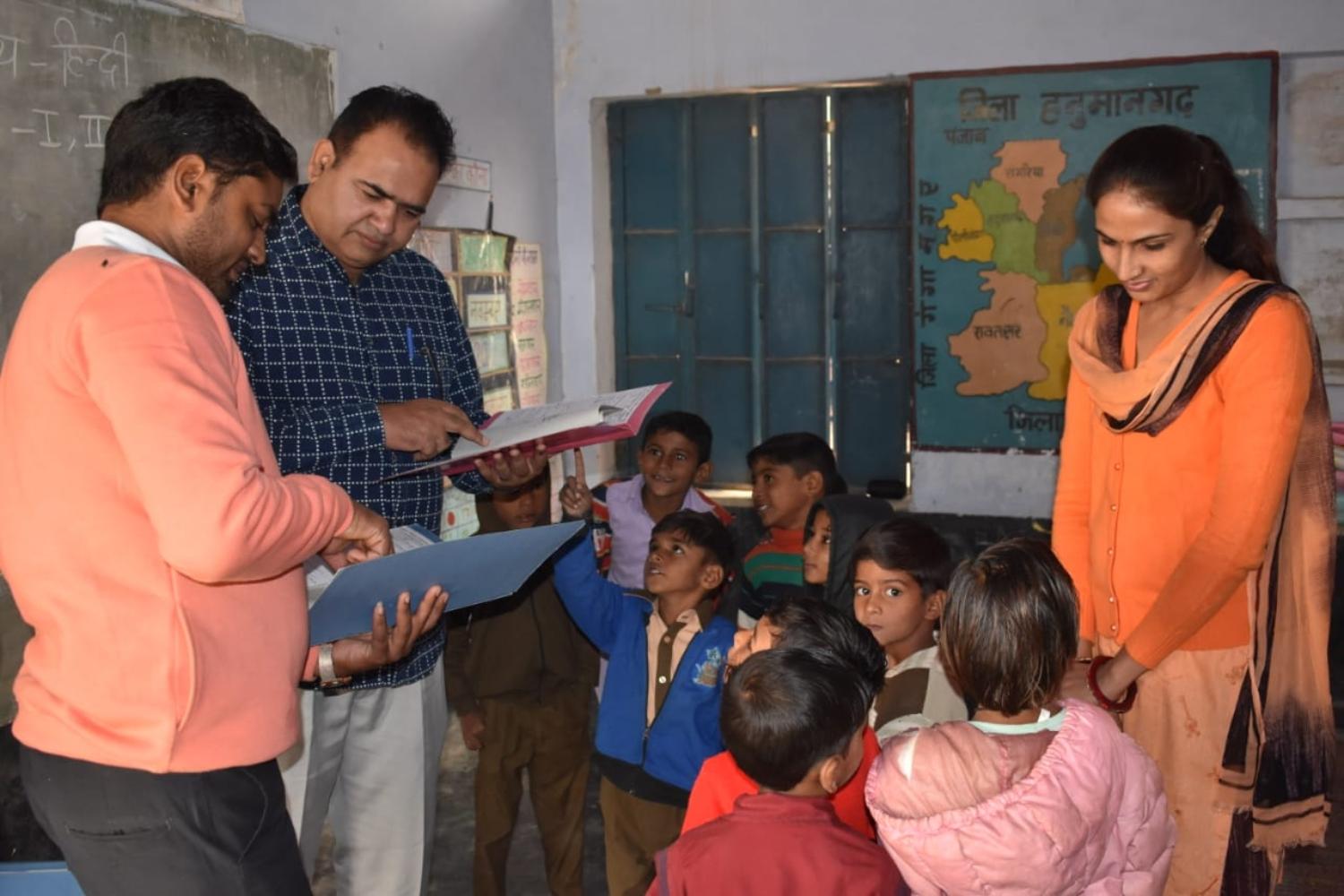Collaborative horizons – Makkala Jagriti’s journey in government partnerships
In his piece titled “Collaborative horizons,” Rohit Shetti shares his organization’s journey in government partnerships, and shows how aligning with existing policies, schemes and structures, organizational credibility and adaptability, and developing a shared vision with departmental leadership, are all critical parts of the process.

Since social welfare, justice and development form the primary mandate of the government, reformative and/or transformative initiatives by civil society can be rendered lasting and sustainable only through governmental collaborations.
Grassroots NGOs often ensure effective last mile reach of government’s welfare programs. However, the scope of civil society collaborations with the government is much beyond that.
From conceptualization to implementation, a healthy partnership between civil society and government at all levels can ensure that development initiatives yield the desired results in a much better and scalable way.
Ensuring education for all is a mission that the government has taken the primary responsibility of. Yet there are many private players, including NGOs, who are rendering services in facilitating or directly providing access to quality education, with varying levels of collaborations with the government.
In this context, Makkala Jagriti, has had its own journey of working with the government at different levels, which has been a learning experience in its own right.
Makkala Jagriti is an organization with 20 years of experience in facilitating holistic learning and development opportunities for children and youth from disadvantaged sections across age-groups. Our experiences of working with the government in this space brings valuable lessons for us to reflect upon and chart a path for stronger collaborations in the future.
What makes working with the government click
A significant amount of Makkala Jagriti’s engagement with the government is at the grassroots level. The organization’s goal has been to impact children in the institutions directly, which include Anganwadis, government schools and childcare institutions. Reflections on our experiences with the government show that there are some key factors that make the relationship click, and more importantly, make it work on a day-to-day basis.
Alignment with the policies and goals of the departments: The primary factor to be considered while working with the government is the alignment with the policy ecosystem, intended goals and vision of government departments, and awareness of the opportunities for collaboration. Holistic development of children has been given due emphasis in the new National Education Policy (NEP 2020). One can find a significant alignment between Makkala Jagriti’s work in government schools and the policy’s objectives.
Similarly, pre-school education is one of the essential services under Integrated Child Development Services (ICDS). It is one of the world’s largest government schemes for early childhood development. Makkala Jagriti’s interventions in Early Childhood Care and Education (ECCE) are both supportive and complementary to the government’s work in this domain. This commonality is an essential foundation to build relationships with the various government departments and institutions. Furthermore, designing programs such that the government’s administrative structure is leveraged to attain buy-in and sustainability is important. For instance, in the ECCE program, we work with the existing structure of ICDS Supervisors, CDPOs and DDs. This helps in making the collaboration smooth and optimizes our efforts.
A non-threatening, collaborative and empowering approach: One of the biggest factors that has worked for Makkala Jagriti in building good relationships with the government is the non-threatening approach adopted by the organization.
We do not approach the government with the identity of a ‘giver’ or an authority-figure with whom they must comply. We have rather approached government institutions with a view to co-own the goals of the partnership and co-learn through the process.
Co-learning or a shared learning process: This is an important part of our initiatives. Notable examples include our capacity building initiatives that go beyond knowledge sharing. These involve contextually handholding and mentoring Anganwadi teachers and the staff of childcare institutions. Our capacity-building sessions with the staff of childcare institutions have evolved into an open and non-threatening forum to share their issues, practices that have worked (or not), and expectations from further sessions.
We have made it a point to be available to the government functionaries. We engage with them and address their unique challenges on the field. This has fostered a mutual learning process. Here both the NGO staff and government functionaries learn from each other, creating a culture of shared knowledge.
A part of our approach is also to make the government functionaries feel empowered as individuals. Toward this, we make sure that our capacity building initiatives are not just knowledge imparting sessions. These also function as opportunities where we value the unique qualities and strengths that individuals bring to the table. We try and make them owners of their own success.

The organization’s own values of freedom, trust and learning from mistakes extend to the realm of working with the government seamlessly. We see these resulting in mindset shifts. These processes also help create role models for others in the system.
We also work on building the self-esteem of government functionaries. This aids in instilling a sense of pride about their roles. Small initiatives like providing a badge that says “I am an Anganwadi Teacher” make such a huge difference.
Shared vision and alignment with departmental leadership
One of Makkala Jagriti’s biggest collaborations with the government has involved the launch and implementation of the state-level program “Maneyali Oota, Maneyali Paata.” This was undertaken in partnership with the Department of Women and Child Development (Department of WCD). The pandemic had forced the closure of schools and Anganwadis. There was a shared concern that children across the state were missing out on pre-school learning opportunities. It was this shared concern that made this collaboration happen.
Through this process, we reached out to 66,000 Anganwadis across the state. We delivered the learning content via the government’s organizational structure. Our rapport with the Department of WCD at various levels, including the district and subdistrict leaders of ICDS, was instrumental in the success of the program. However, credit must also go to the Directorate-level leadership, viz., Dr. B. Usha (Joint Director), who issued timely and clear directions for the implementation. An indicator here is the swiftness of communication and information exchange at all levels. We don’t normally associate this kind of swiftness with the government.
Another state-level initiative of Makkala Jagriti was with the Directorate of Child Protection. In this collaboration, we launched a virtual learning program for children in Child Care Institutions (CCIs) across the state. We reached out to the children and staff of private and government CCIs with learning opportunities, during the COVID-19 pandemic and beyond.
The organization’s track record of creating learning opportunities for children in institutional care played a role. However, the Directorate-level leadership’s clear vision and passion (in this case, Smt. Pallavi Akurthi), was also important in the success of this initiative.
Transforming from a worker to a teacher
Shantala, is one of the most passionate Anganwadi teachers today. Like many others, she earlier believed that her role was that of just a worker in an Anganwadi. Learning about the importance of brain development in early years inspired her to ensure that her engagement with children provides all the stimulation they need. She is an advocate for early childhood learning among the community she works in. The mindset shift from looking at oneself as a “teacher” from a “worker,” and her own realization that it indeed takes a lot of learning to be a good teacher is instrumental in her transformation.
Seeing is believing
How do government officials trust us with what we do and offer collaborative support? We can say this is primarily because of the quality of the work at the ground level. We bring key officials to our schools, Anganwadis, and events. When senior officials of the department witness how Anganwadi teachers lead Anganwadi Habba – a large community-level event where they showcase best practices in ECCE – they revel in the Anganwadi teachers’ potential and think about new possibilities.

When officials from the Education Department notice how government school children excel in events like Kalika Habba, they become aware of the ground-level work behind the children’s performance. In many of the events, we make it a point to showcase the possibilities and opportunities for children’s holistic development.
This awareness and exposure help us influence the system at different levels. These include aspects such as the way the CDPOs, CRPs or BEOs appreciate holistic development of children and create supportive environments. We have also seen greater involvement of the government functionaries in planning activities for the children and interest in appreciating the impact of our programs.
Leveraging existing schemes and mechanisms from the government
Makkala Jagriti’s journey began with learning centers set up in urban poor communities in Bengaluru. The first center was located in Adugodi. It was in an area where not all children went to school. Those who did, mostly went to government or low-fee private schools. They were typically deprived of an encouraging learning ecosystem in their communities. In our learning center, they found themselves in a space that opened up new ways of learning for them. There was fun, freedom, and respect for each other. They also had access to resources. They found a sense of belonging as well.
Makkala Jagriti was able to successfully institutionalize these learning spaces in government schools. A key factor that made it possible was an existing scheme in the government called “Shaala Dattu Yojane.” This allowed NGOs to collaborate with Sarva Shiksha Abhiyan.
A rich process of engagement with government schoolteachers, and other leaders in the system, was also a critical factor in the institutionalization of the learning centers. This helped in developing a shared understanding of how the centers worked. It also aided in visualizing their replication in other schools. However, leveraging the existing scheme acted as an important aiding factor and catalyst in the process.
Organizational credibility, integrity and adaptability
A key factor in successfully working with the government is the organization’s track record. Makkala Jagriti has been working consistently with the government in the institutions that have been part of the program. This has established credibility.
For instance, we work in CCIs and Observation Homes. Here situations can be very dynamic and unpredictable. Working in a steadfast manner in tough places such as these has helped the organization secure the reputation of being adaptable. It has also made us be seen as being with the government through thick and thin.
In other places such as schools and Anganwadis as well, we have seen that steadiness and consistency help overcome initial resistances, if any. It also leads to mindset changes. This is one of the most important tools to make an impact in a government institution. Makkala Jagriti was able to align its programs creatively and effectively to the needs of the COVID-19 pandemic, and partner with the government meaningfully. This has lent credibility within the government. It has enhanced our image as a knowledge partner as well.
The organizational and program leadership also needs to back the team to go through ups and downs in working with the government machinery. There is a multi-level trust factor at play here: the government trusting the NGO, and the NGO field staff also feeling trusted by the leadership to take decisions based on the situation and learn from it.
In essence, the collaborative journey between Makkala Jagriti and various government entities has involved developing a shared vision and mutual respect. It has also entailed creating non-authoritarian partnerships for fostering meaningful change. There is much more engagement we seek to have with the government going forward. However, we feel confident that these principles will continue to be a foundation for further work.
With a 23-year career spanning the industrial and non-profit sectors, Rohit Shetti currently leads the programs at Makkala Jagriti in the position of Deputy Director – Programs. He is a strong advocate of collaborative partnerships between the government and civil society as well as among civil society organizations.




No approved comments yet. Be the first to comment!